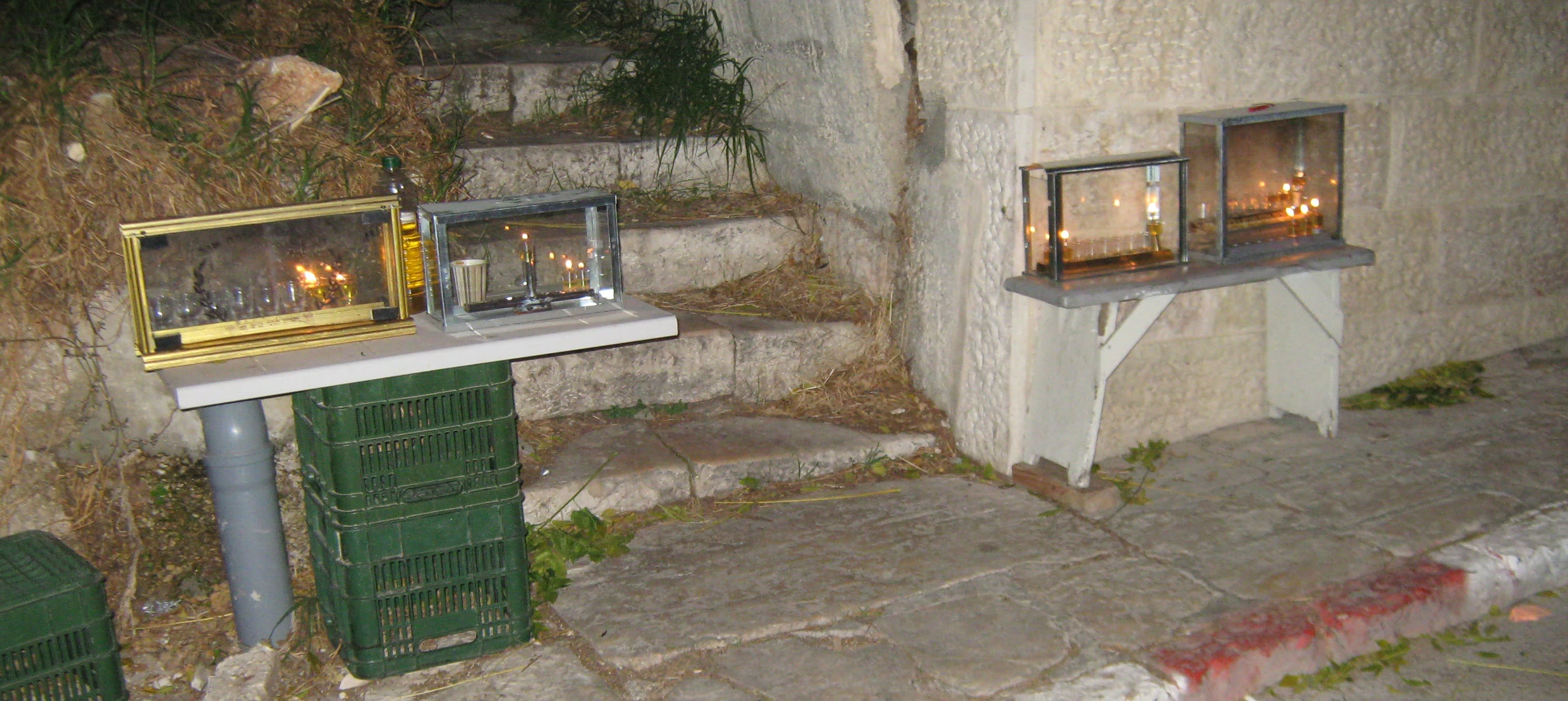The Talmud rules that the ideal way of fulfilling the mitzva of Chanukah lights is by lighting them at the entrance to the house, so that they are clearly visible to passers-by. However, our Sages continue, when there is danger in doing so – because of hostile non-Jews – it is sufficient to light the candles inside. (Shabbat 21b, SA OC 671:5.)
It is easy to understand why we are exempt from lighting Chanukah lights outside in the face of danger. But why do we then light them inside – isn’t the whole purpose of this mitzva to publicize the miracle?
The answer is that when we are persecuted, we need to publicize the miracle to ourselves. When we can freely study and practice our religion, then we are naturally filled with appreciation for the self-sacrifice of the the Maccabees and of the miracle which God performed for them. Then we occupy ourselves with proclaiming God’s loving kindness to the whole world. But when we are oppressed and constricted, we are exposed to doubts and hesitations which may weaken our devotion to Torah. At that time, we must remind ourselves that God ultimately comes to the aid of the Jews and performs miracles on our behalf.
The ideal place for the Chanukah menorah is at the entrance to the house. Although seemingly the right side should be favored, since we always give precedence to the right-hand side, in this case the left side of the entrance is chosen, so that one who enters the house is surrounded by mitzvot – mezuzah at the right and Chanukah lights at left (Shabbat 22a, SA OC 671:7).
Another way of viewing the same rule is to say that the mezuzah is to our right as we enter whereas the Chanukah lamp is to our right as we leave. The mezuzah is a very private mitzva. The text itself is a personal exhortation to love God; the scroll is invariably rolled up with the blank side out, and then enclosed in a case. This mitzva reminds us of our connection to HaShem as we enter our private domain. (See what we wrote on placement of the mezuzah in parshat Vaetchanan.)
The Chanukah lamp is the ultimate public mitzva. The essence of the mitzva is “pirsumei nisa” – publicizing the Chanukah miracle; the miracle being commemorated was the most public defeat of the Greek-Syrian armies by the Maccabees – an event which must have stirred the ancient world. This mitzva reminds us of God’s special providence towards us as we venture out into a sometimes-hostile world. If there is no mezuzah on the door, then the menorah is indeed placed on the right. This halakha bears a message similar to the one above, of placing the menorah inside in times of danger: in a domain without a mezuzah, one in which there is some obstacle to making it into a holy, private domain, we are in need of a reminder of HaShem’s providence even as we go into our dwelling.
Rabbi Asher Meir is the author of the book Meaning in Mitzvot, distributed by Feldheim. The book provides insights into the inner meaning of our daily practices, following the order of the 221 chapters of the Kitzur Shulchan Aruch.
The words of this author reflect his/her own opinions and do not necessarily represent the official position of the Orthodox Union.

